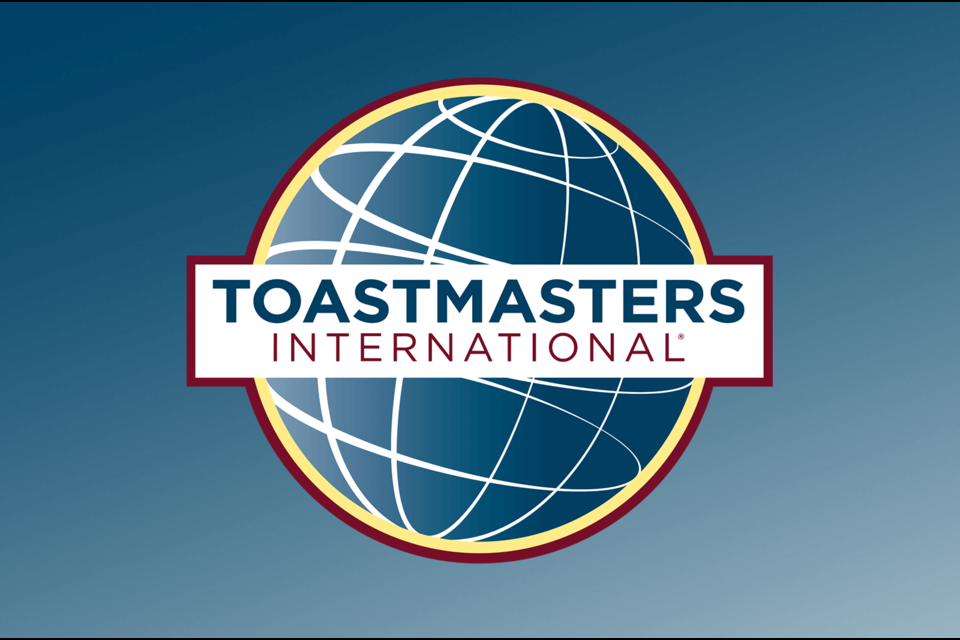Toastmasters International is a non-profit organization based around improving the speaking and communication skills of its members.
The local chapter, Big Country Toastmasters, is an amalgam of two previous chapters in Moose Jaw: Sitting Bull Toastmasters and Standing Bear Toastmasters who merged 62 years ago.
During the organization’s meeting nights, speakers are typically allotted seven minutes to give a presentation, and the chapter’s president keeps track of each speaker’s window of time.
The previous meeting stretched the limitations of this format somewhat, by inviting a distinguished guest speaker to talk about “the awesome power” of folklore and storytelling.
The speaker at the Big Country Toastmaster’s Sept. 27 meeting was Dr. Caren Neile.
Dr. Neile’s presentation opened with a rather peculiar story, outside of the norm for contemporary Western storytelling. Her story was a rendition of an old Japanese folk tale and formed a rather unexpected introduction that managed to capture everyone’s attention and imagination.
According to Dr. Neile, this introduction was a demonstration of the inherent “power of storytelling to take people’s minds and hearts to a different place.”
“Folklore is a thing, a product of culture… and also a discipline of study…,” she said. When viewed as a discipline, folklore can be broken down into four key elements.
First, it’s an oral tradition. This has been expanded in the modern world, but still remains firmly rooted in a lengthy past of vocal storytelling. What’s significant about this is the fact it came “from the people,” rather than the desk of a publisher or a credited author.
Second, folklore is defined by its anonymity. These tales continue to adopt the traditional style that remains anonymous, such as early musical verse or the case of Cinderella’s story, which contains no known original variant.
Third, these tales can be passed vertically from generation to generation, or they can be passed horizontally to others in your environment by word of mouth.
Fourth, due to its nature, everybody who encounters folklore is allowed to change it and bring new life to the tales established long ago. This is permissible, by definition, so long as the original tale stays recognizable.
Many of those who study and appreciate folklore seek a “great unifier,” the one element that all folk tales have in common. This quest, they believe, will help define humanity based on the one thing we all have in common.
Folklore, to the contrary, says the opposite: that our singular differences and variety makes us who we are.
Many who share a story or tale of lore conclude with a statement announcing the “moral of the story.” According to Dr. Neile, folklore contains a subjective moral value, which means there is no one moral lesson behind a given story.
“What comes out of the story for you?” she asked, while challenging us to think deeply and consider for ourselves what the truth of a given story may be.
“The answer is in your hands,” she concluded.
Dr. Neile is the founding director of the South Florida Storytelling Project, and her research and teachings are centered around the fields of Intercultural, Cultural, and Rhetorical Communication Studies. Her research emphasizes the building of peace and tolerance, as well as health and well-being. She earned her Ph. D. at Florida Atlantic University, and her M.F.A. at the Florida International University.
Toastmasters International is a non-profit educational organization that seeks to build confidence and teach public speaking skills through a worldwide network of localized clubs. Meetings are held in person, and since the COVID-19 pandemic, a virtual element has been introduced thanks to the Zoom app.
Originally founded in 1924, Toastmasters is based out of Englewood, Colorado and has around 270,000 members across more than 14,200 clubs in 148 countries.
For anyone interested in the Toastmasters organization, details can be found at ToastMasters.org.
To join the local chapter, contact Cathy Morrell at 306-630-7015 or Lorna Arnold at 306-690-8739.
The local Big Country Toastmasters chapter holds its meetings at Sask. Polytechnic, located at 600 Saskatchewan Street West.




